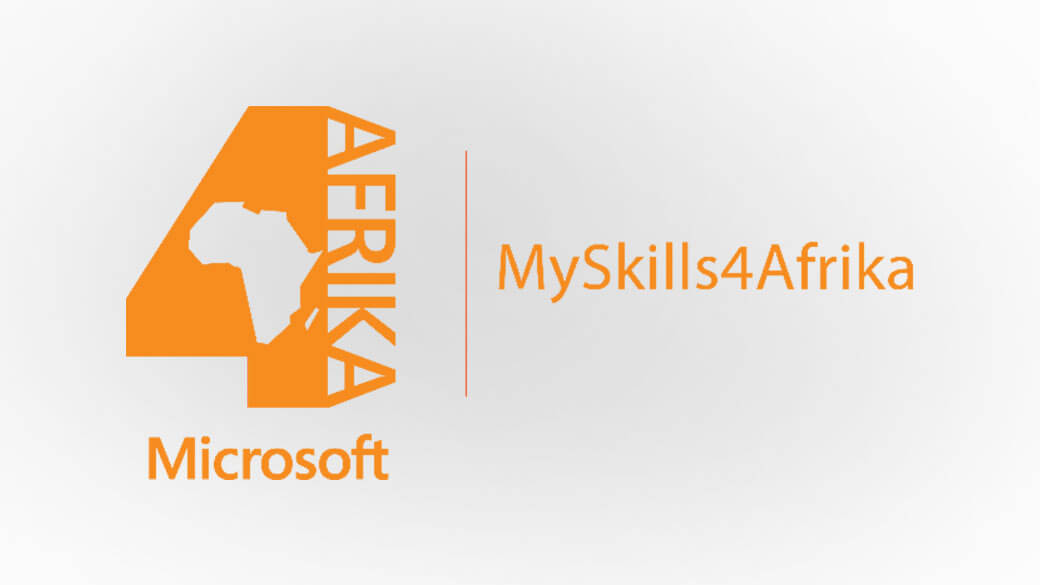
Over 2,300 Kenyan students – young graduates and interns – will receive Microsoft training and certification by the end of this month, in an effort aimed at closing the ever-present skills gap and to prepare them for the world of work after college.
According to the World Economic Forum, there is currently a significant skills gap in Africa with employers across the continent identifying an inadequately skilled workforce as a restriction on business growth, including 41% of all firms in Tanzania, 30% in Kenya, 9% in South Africa, and 6% in Nigeria. It’s no secret therefore that closing the skills gap is an absolute imperative if we are to keep up with the Fourth Industrial Revolution (4IR). In addition, a recent IFC report notes that 230 million jobs in sub-Saharan Africa will require digital skills by 2030, therefore the continent requires an injection of digital skills.
“What’s even more important in Africa, given the youth bulge and widening skills gap, is ensuring workplace readiness for our young graduates who are finding that their degree doesn’t quite fit the requirements of 4IR and the digital economy,” says Martin Ndlovu, Head of Skills Development at Microsoft 4Afrika.
To address these challenges and uplift the talented youth, Microsoft, through the 4Afrika initiative, launched a pilot programme in Kenya to train and certify graduates and interns new to the workforce, with the aim of getting these students Microsoft Certified. Students were chosen from several organisations, including the Ministry of ICT, three of Kenya’s top coding schools, Moringa, Modcom and CodeLn, from Andela and Cloud Factory.
The programme started in December 2019 with in-person events, but as the Covid-19 pandemic affected the continent, this rapidly shifted to a Virtual Instructor-led Training (VILT) approach. Since launch, more than 800 Kenyan students have been trained on Microsoft technology, and importantly, also provided with comprehensive soft skills readiness content and access to free certification vouchers for Microsoft technology exams.
The programme achieved a certification rate of around 40 percent of the students. The training and certification camps also targeted a set of almost 200 trainers, who will redeliver the certification training to an additional 1,500 students by September 2020.
According to Ndlovu, Africa, with the youngest workforce on the planet, needs to have access to workers that don’t just have the right certifications behind them – they need to be ready for the modern world of work professionally. On top of the technical skills required, it’s necessary to prioritise the soft skills that help people thrive in formal employment – 4IR-type skillsets such as negotiation skills, complex problem-solving, project management and people management, along with productivity and mental wellbeing tools.
4Afrika enlisted the services of LGIT Smart Solutions as the learning partner to manage this training programme, student interactions and deliver training to the students. LGIT managed access to the cloud platform, issued exam vouchers, provided exam readiness sessions and gave the students access to their proprietary learning management content and readiness system.
“The programme has prepared me to venture into the world of cloud. From here, I plan to invest in my career towards cloud computing and maybe be an evangelist in the future,” says Maurice Oduor, a participant in the programme.
Another participant, Hezbon Oduol, said: “I am really impressed with the course content and the skills gained so far. I will use the skills gained to come up with business innovations and further my cloud skills. The course is organised in an easy to understand format and very rich in content, the mentors were readily available, and this motivated us to continue with the programme.”
Ndlovu noted that LGIT’s expertise in running VILT sessions and supporting the students through the training itself, as well as the follow-up certification process support, has been invaluable in ensuring the ability to successfully meet the graduates’ skilling aspirations in Kenya.
“Ultimately, we hope to roll it out to other markets at scale. This is a pilot project, but with tangible results for the people involved in the programme,” he adds.

